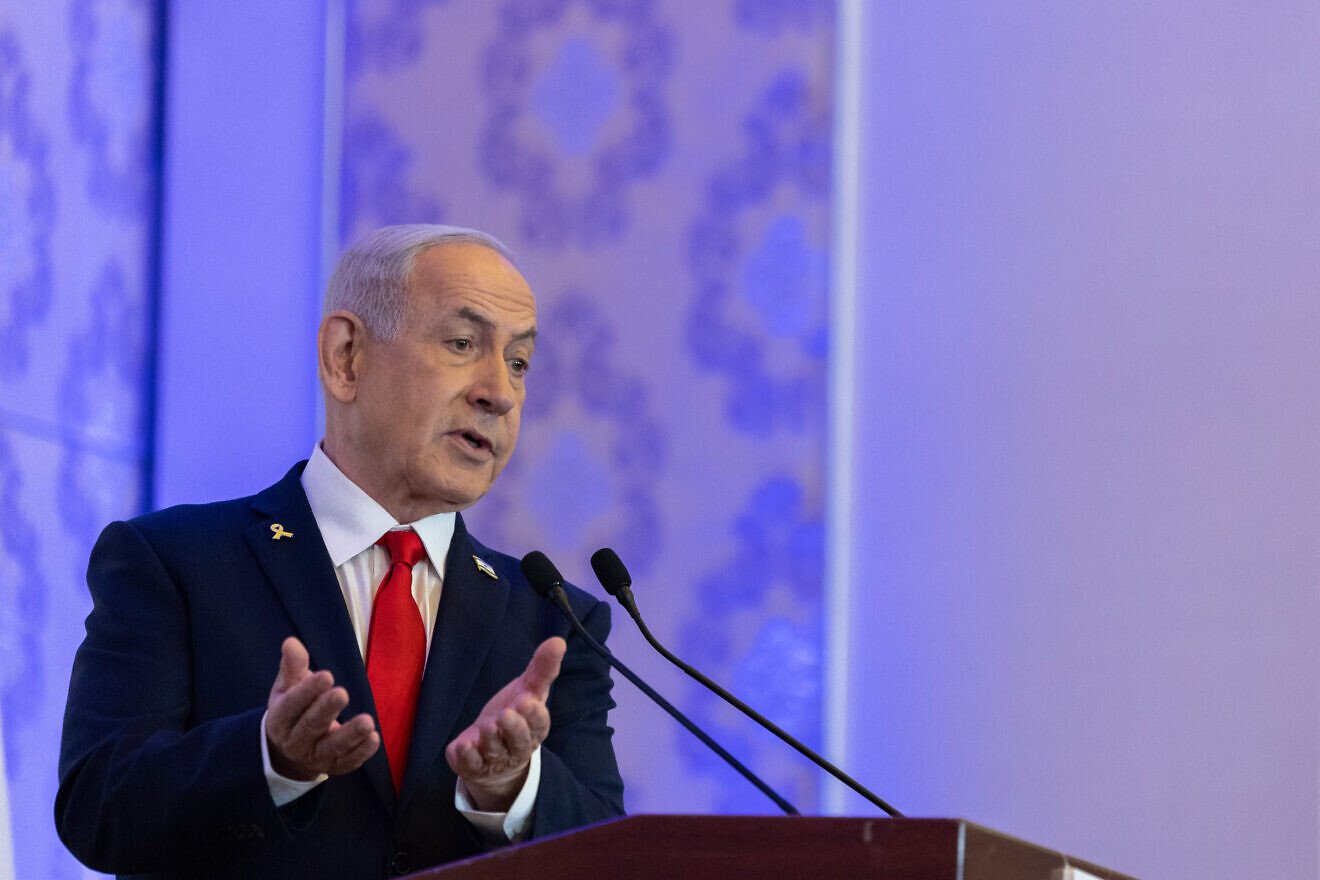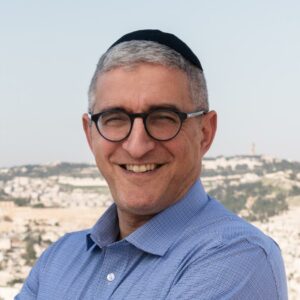Israel’s two sins were:
1) Giving away ‘Har Habayit’ (The Temple Mount)
Jerusalem is the heart of the Land of Israel, and Har Habayit is the heart of Jerusalem. It’s the center of our historical connection to the land, and it’s the focus of Jewish destiny. When, in the wake of Israel’s conquest of the Old City, Israel gave away Har Habayit to the Jordanian Waqf (Muslim religious authority), it caused grave damage to the relationship between the people of Israel and the Land of Israel.
2) The failure of Israel’s leaders to publicly thank God for Israel’s miraculous victory
The people who led Israel in 1967 were, unfortunately, estranged from their Jewish connection to the Torah and from their ancestral traditions. They played a critical role in bringing the modern-day State of Israel into being, but the name of God was seldom on their lips. For them, Israel’s miraculous victory was due to the greatness of Israel’s army and the mistakes of its enemies.
This estrangement of Israel’s leaders was not merely from the Jewish religion. The word Jew comes from the name of Jacob and Leah’s son, Yehudah. The name Yehuda, according to the Torah (Breishit 29:35), means to thank and acknowledge God. To carry a Jewish identity means having an intensified sensitivity to acknowledging and thanking God. To be a Jew at heart means to be thankful to and cognizant of our Creator. The leaders of Israel represent the nation. The failure of Israel’s leaders to thank God for their miraculous salvation was a deep spiritual blemish in the Jewish identity of the State of Israel.
The events that accompanied the 12-day war against Iran in mid-June were in some ways even more spectacular and miraculous than the Six-Day War in June 1967. Before this war, Israel’s military leaders briefed the government ministers on what to expect— how many Israelis would be killed, how many Israeli planes would be lost, how much of Iran’s capabilities would be left afterwards, etc.
What actually happened was much better than their most optimistic scenario. Israel’s attack plan was extremely complicated. It involved many active participants separated by hundreds of miles from one another who had to act in synchrony and with stealth. Miraculously, everything worked out perfectly, and it continued to do so. Over the next 12 days, Israel’s Air Force flew hundreds of missions over enemy territory 1,500 miles away. Every mission required complicated mid-air refueling, and Israel’s refueling planes are 60 years old, basically flying museum pieces. So much could have gone wrong, but all the planes and their pilots returned safely.
This recent miracle has a long history. Some 3,000 years ago, the Red Sea parted, the Jews crossed through safely, and our persecutors were all drowned. What we just witnessed was no less miraculous.
In the desert, just before Moses died, he delivered a speech in which he encouraged the Israelites as they prepared to enter the Promised Land. He said: “The Lord, your God will go before you and He will fight for you, just as He did for you in Egypt before your very eyes” (Deuteronomy 1:30). In the history of the modern State of Israel, there have been many examples of God fighting for the Jewish people, but this 12-day war with Iran tops them all.
This time, however, unlike in 1967, Israel’s leader—Prime Minister Benjamin Netanyahu—prayed to God for success before the 12-day war, and thanked God, both privately and publicly, for the miraculous salvation afterwards.
Here (translated) are the introductory remarks that Netanyahu gave at the beginning of his press conference on June 22—10 days after Israel’s initial attack, and one day after American B-2 bombers destroyed the Fordow nuclear facility.
“Citizens of Israel, when I was first elected prime minister, I participated in the March of the Living at the Auschwitz extermination camp. There, I wrapped myself in a tallit and said, ‘Shema Yisrael, H’ Elohenu, H’ Echad.’ Ten days ago, a few hours before the historic operation against the evil regime of Iran, I visited the Kotel (Western Wall), and there, too, I wrapped myself in a tallit and offered a prayer for the success of our heroic pilots, our soldiers, our excellent commanders, for the security of our country, and for the peace of our people. I wrote on a note that I placed between the stones of the Kotel: Am kelavi yakum, vekeari yitnaseh (“Israel is like a lion, rising boldly,” Numbers 23:24). That is the name I gave to the operation, and today, after ten days, I returned to the Kotel with my wife. I again wrapped myself in a tallit and offered a prayer of thanks and a plea for continued success.”
For the next 30 minutes, Netanyahu took questions from the press. He concluded the press conference with the following:
“I say, not jokingly, but from the depths of my heart and my innermost faith, that the most important faction (in Hebrew, the word for faction is See-yah) in Israel is See-yah-ta di-shmayah (Aramaic for “Divine assistance”). Our warriors and citizens showed tremendous heroism. We had tremendous help from our friend (President Trump), but there was also the Divine assistance of Hakadosh Baruch Hu (The Holy One, blessed be He), and for that I want to give thanks and acknowledgement on behalf of the generations of Jews who hoped and waited to establish a state that would protect them. That is what we’re doing. Thank you.”
In the spirit of our ancestor Yehuda—the leader of the Jewish nation—Netanyahu thanked and acknowledged God for God’s salvation. He fixed the second sin of 1967. However, Netanyahu’s understanding of Zionism makes it unlikely that he will fix the first sin.
Auschwitz Zionism vs. biblical Zionism
For Netanyahu, the central goal of Zionism is making sure that the Jews will never again be without a nation to defend them when Jew-haters rise up against us. It’s no accident that, immediately upon first taking office, he went on the March of the Living. He has stated on innumerable occasions that “The Jewish state was set up to defend Jewish lives.” Donning a tallit and reciting Shema Yisrael at Auschwitz was his way of swearing himself in as Israel’s leader to take up the role of defender of the Jewish nation that defends the Jewish people.
But this is not how the Bible understands Zionism. The term “Zion” is mentioned more than 150 times in the Bible, particularly in the Psalms of King David, in the words of the prophets. Sometimes, Zion refers to the Land of Israel, sometimes to the Jewish people, and sometimes to Jerusalem. However, the most common and specific meaning of “Zion” is Har Habayit and the Beit Hamikdash (the holy “Temple” in Jerusalem).
From a biblical perspective, “Zionism” is a movement centered on Har Habayit, with its central goal being the rebuilding of the Beit Hamikdash.
Western Wall Zionism vs. ‘Har Habayit’ Zionism
It’s also characteristic of Netanyahu’s understanding of Zionism that he went to the Kotel (the Western Wall) to pray before the attack on Iran and afterward to give thanks to God for its miraculous success.
On June 7, 1967, Israeli paratroopers liberated Har Habayit and the Western Wall. Israel then created a large plaza in front of the Western Wall and gave away Har Habayit. I heard an apt characterization of these actions from Moshe Feiglin. Israel, he explained, was given the most precious gift imaginable, wrapped in an impressive box. In response, Israel gave away the big gift and pretended that the box was the real gift.
The Western Wall is the retaining wall for Har Habayit. Without it, Har Habayit would collapse. The Western Wall creates the framework or the “box” on which Har Habayit exists and on which the Beit Hamikdash will one day be built.
For Netanyahu, Zionism is about building a strong national framework for the Jewish people, building a “box” where the Jewish people can live in security. Netanyahu has been true to his oath, taken three decades ago, at Auschwitz. There is no Israeli leader in the last 50 years who has done more than Netanyahu to make Israel a strong nation. His economic reforms in the early 2000s helped make Israel an economic powerhouse. His recent Churchillian leadership has broken the back of the existential threats that surrounded us two years ago and helped Israel become the dominant military power in the Middle East. He has reinforced Israel’s “retaining walls,” and helped make Israel stronger and more secure than at any time in its history.
Authentic Zionism yearns for God’s return to Zion
Three times a day—in the morning, afternoon, and evening prayers—Jews pray to “see with our own eyes the return of the Shechinah (“The Divine Presence”) to Zion.” Three times a day, our prayer liturgy invites us to visualize what it will be like when God’s Presence returns to Zion—the Beit Hamikdash—on Har Habayit.
When we pray for the rebuilding of the Beit Hamikdash, we’re not just praying for a building. We’re praying for a re-energized, loving relationship between the Creator and His creation. We’re praying for the Shechinah, the Divine Presence, to rest on Earth. We’re praying for a spiritual light to radiate from Zion onto our entire planet, connecting us to God and one another, and guiding our planet toward a future free from poverty and war. This is the “Zionism” that is most authentic to Jewish tradition.
Whether one supports all of his policies or not, we are fortunate to have Benjamin Netanyahu as our leader during this critical time in Israel’s history. I pray every day that God will give him strength and courage. However, he is ultimately a transitional figure. He has helped build the foundation for the next, more Jewishly authentic stage of Zionism, which will reclaim Har Habayit and direct our energies towards rebuilding the “Sacred House,” where God’s Presence can rest.




